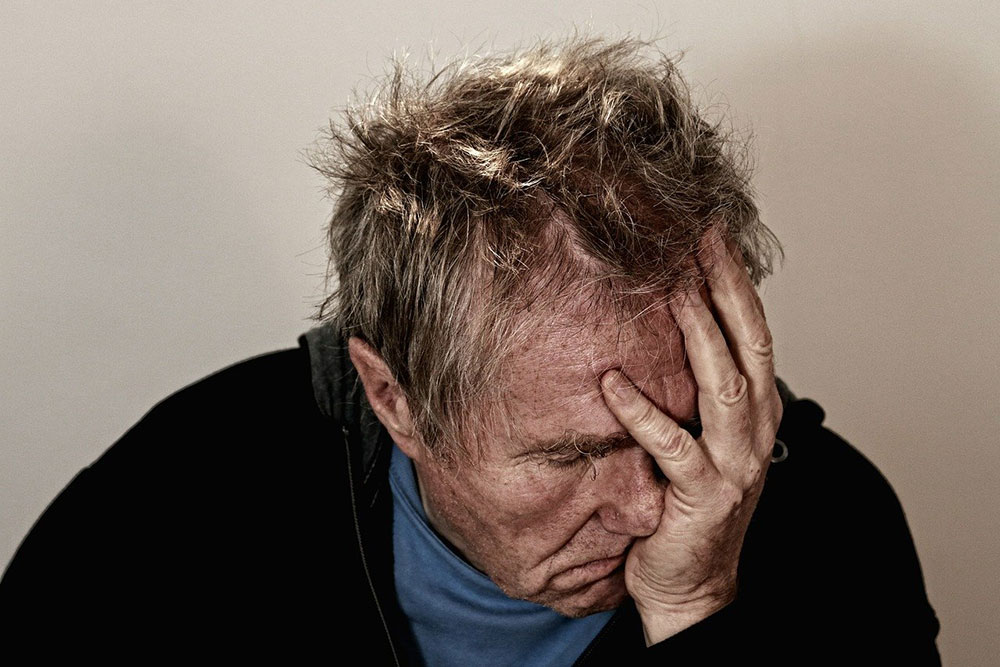Does Post-Traumatic Stress Disorder Go Away?
Published on August 23rd, 2018
Updated on January 3rd, 2024

Suffering from post-traumatic stress disorder (PTSD) is challenging. It is a disorder that has lasting effects on a person. PTSD can develop when a person goes through significant trauma or abuse. It can cause a person to feel like they are a prisoner to their trauma. People with PTSD often feel helpless as they struggle with the condition.
Post-traumatic stress disorder causes people to relive their trauma. This happens over and over again, which can make painful and traumatic memories distressing and powerful. PTSD can feel inescapable and has serious impacts on an affected person’s mental health and wellness.
The memories of fear and pain that a person feels when going through a traumatic event cannot be erased. They are significant and influential memories that will have a deep and withstanding impact on an affected person.
Sponsored by

Choose a therapist to work with and start healing with 20% off from BetterHelp.
Click HereWhile the memories cannot be erased, it is possible to decrease how intensely these memories affect a person with PTSD. With therapy, the emotional distress and symptomatic behaviors can be modified, so a person can find peace and mental wellness.
It does take time, patience, and commitment to therapy, but it is possible to recover from PTSD and live a healthy and happy life.
What Is It Like To Suffer From PTSD?
Post-traumatic stress disorder is developed after a person experiences a traumatic event. A traumatic event has a significant impact on the affected person’s mental health and ability to self-regulate. It can be caused by different types of trauma, like:
- Abuse
- Assault
- Natural disaster
- Domestic abuse
- An accident
- A near-death experience
- Witnessing a violent or traumatic event
People who have PTSD may show a change in their personality. The way a person with PTSD sees themselves and the world is affected. PTSD causes a person’s self-image, perspective on life, and overall ability to function to be negatively impacted.
When a person develops PTSD, they will experience changes in their behavior and mental health. Such symptomatic behaviors include:
- Withdrawal from friends and family
- Irritability and mood swings
- Disinterest in things he or she used to enjoy
- Hypersensitivity, especially when confronted by a trigger
- Panic attacks
- Depression
- Acute anxiety
- Insomnia
Are People With PTSD Hopeless?
PTSD can cause a person to lose hope in recovery, but it is possible to recover from PTSD. People often wonder if PTSD ever goes away, and it is a complicated question to answer. The memories of the events that deeply impacted the affected person do not go away. The goal of therapy is to lessen the emotional and behavioral symptoms that come from the trauma experienced. with those memories. Ultimately, the goal of therapy for PTSD is to change the reliving to remembering. This means that the affected person will remember the trauma they endured, but it will not feel like it is happening all over again, or that they need to constantly be bracing for pain.
Symptoms of PTSD are intense. They are caused in reaction to experiencing a traumatic event, which impacts the functioning of the nervous system. People with PTSD have symptoms due to the nervous system’s failure to self-regulate or function normally due to the traumatic event. The nervous system is constantly on alert, which causes symptoms that keep an affected person on edge and having to deal with uncomfortable symptoms. Some common symptoms of trauma include:
- Flashbacks
- Nightmares
- Hypersensitive threat-reaction response (fight-or-flight)
- Rage and irritability
- Fearfulness
- Guilt and shame
- Insomnia
- Paranoia
- Difficulty relaxing
- Distrust for others
How Therapy Can Help People With PTSD
It is important for a person who is suffering from PTSD to seek therapy. If they do not, it is likely they will develop maladaptive coping strategies. Maladaptive coping strategies are coping strategies that are unhealthy. They may accomplish their purpose of separating the conscious mind from the traumatic event but can cause the symptoms to worsen or new symptoms to arise. Common maladaptive coping strategies include:
- Suppression – the pushing down or bottling up emotions and memories
- Dissociation – a mental and spiritual disconnect from one’s body in a time of high stress or alertness
- Displacement – taking out anger, fear and frustrations on others
While these coping strategies may seem effective in the moment of high stress, they can be damaging to the affected person. When a person engages in maladaptive coping strategies they prevent the brain from properly processing the information. This prevents the person from being able to differentiate between real and imagined danger. As a result, the nervous system remains on high alertness and dysregulation.
It is important to get counseling to avoid the development or strengthening of maladaptive coping strategies. Recovery from PTSD is challenging, but it is also effective. Therapy will not erase the traumatic event(s) that the affected person experienced, but it will help them learn how to accept, grieve, and understand the situation without having to relive it constantly.
There are types of therapy that can help treat PTSD. Each type intends to lessen the intensity of symptoms and teach how to cope with the stress of their trauma. Common types of therapy that are used to help people with PTSD include:
Cognitive Behavioral Therapy (CBT) is a form of therapy that teaches methods of coping with trauma. It targets a person’s reaction to triggers and methods of coping with symptoms. CBT helps to minimize the emotional impact of distressing thoughts and modify behaviors so they do not reinforce the trauma response.
Eye Movement Desensitization And Reprocessing (EMDR) is a therapeutic technique that intends to lessen the trauma response for people with PTSD. This technique works by redirecting attention from the trauma and onto something else. As a result, the emotional response is minimized as conscious awareness is distracted from the impact of the traumatic memories.
Sponsored by

Find an affordable therapist online with 20% off from BetterHelp.
Click Here






Leave A Reply